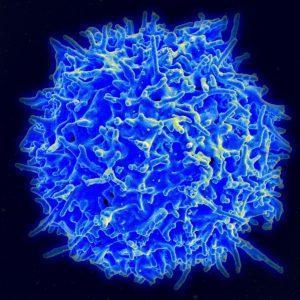Despite having aggressive treatments available for relapsed acute lymphoblastic leukemia (ALL), the prognosis for this disease remains poor. Relapsed and refractory acute lymphoblastic leukemia (ALL) is a form of cancer that is responsible for the most childhood cancer deaths and an extremely poor prognosis for adults. Traditional treatments require spinal taps and bone marrow tests among other highly discomforting procedures. Researchers from the University of Philadelphia have started looking at chimeric antigen receptor–modified T cells as a potential treatment strategy for relapsed and refractory ALL. These T cells are genetically engineered to couple anti-CD19 single-chain Fv domains to intracellular T Cell signalling domains of the T cell receptor. This redirects CD8+ T cells to cells that express this antigen. This allows the patient’s own immune system to directly attack the infected B cells in the body.
In a pilot study at the Children’s Hospital of Philadelphia and the Hospital of the University of Pennsylvania, 30 patients with ALL received the CD19-directed chimeric antigen receptor (CTL019) treatment. 18 of these patients had relapsed after allogeneic stem-cell transplantation. 90% of patients went into complete remission and CTL019 cells were detected in the blood, bone marrow, and cerebrospinal fluid in patients who responded to the treatment. After 6 months, the overall survival rate of patients was 78% and CTL019 was still detected in 68% of patients. Remissions for up to 24 months were also observed.
In clinical cases, the CTL019 treatment has been shown to be effective against treating relapsed and refractory ALL. Even in patients whose stem-cell transplantations had failed, CTL019 treatment was associated with a high remission rate. This exciting new treatment shows promising results, and has recently been recommended for approval by the FDA.
Journal Article: Maude et al., 2017. Chimeric Antigen Receptor T Cells for Sustained Remissions in Leukemia. New England Journal of Medicine
Article by Maxwell Chan












